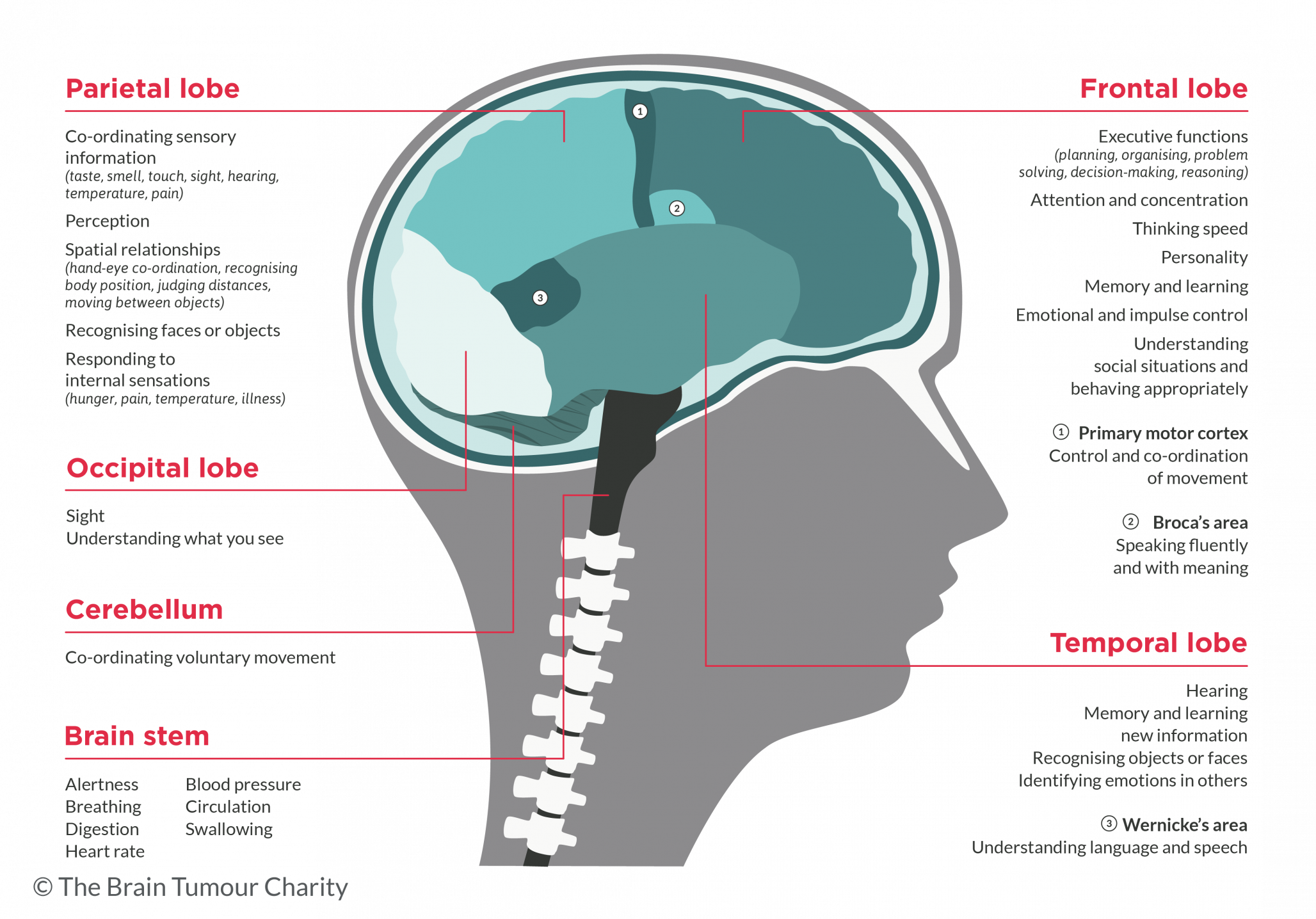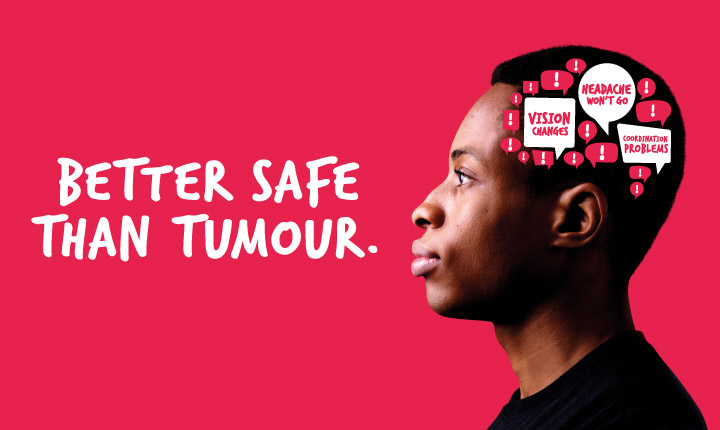Symptoms of a brain tumour based on location in the brain
Symptoms of a brain tumour can vary depending on the brain tumour’s location. Below, we’ll mention some of the symptoms that can begin based on where the tumour is in the brain.

Short summary
The human brain is divided into two halves called the right and left hemispheres. The brain can also be divided into four areas known as lobes (frontal, temporal, parietal and occipital) plus two other important areas called the brain stem and the cerebellum.
The presence of a brain tumour can cause damage to healthy brain tissue, which can stop that area of the brain functioning as it should.
Here we’ll discuss the possible symptoms that could appear based on where a tumour is located in the brain.
Remember that many of the symptoms due to raised intracranial pressure (ICP) can be caused by other medical conditions. So if you are experiencing these symptoms, it does not necessarily mean you have a brain tumour.
On this page:
Other symptoms
Use our Better Safe Than Tumour symptom checker to check for other brain tumour symptoms.
Talking to your doctor
Learn more about how to approach your GP.
Get your free Information Pack
Our Brain Tumour Information Pack can help you better understand your diagnosis and feel confident talking to your medical team.

Symptoms of a brain tumour based on location
-
When the location of the brain tumour is the frontal lobe it may cause difficulty with:
- concentrating or focusing your attention on something
- speaking
- communicating or using language
- controlling emotions and behaviour
- executive functions (making decisions, solving problems, planning and organising)
- learning and remembering new information
- lack of inhibition (making inappropriate comments during conversation or laughing in inappropriate situations)
- social cognition, impulse control and sexual behaviour
- weakness on the opposite side of the body from the tumour
- loss of smell.
-
When the location of the brain tumour is the temporal lobe it may cause difficulty with:
- hearing
- speaking
- identifying and categorising objects
- learning new information
- correctly recognising emotions in others
- memory loss
- seizures or blackouts
- sensations of strange smells.
-
When the location of the brain tumour is the parietal lobe it may cause difficulty with:
- bringing together information from your different senses (touch, vision, hearing, smell, taste) and making sense of it
- recognising faces or objects
- co-ordinating movements
- spatial awareness (judging distances and hand-eye co-ordination)
- speaking, understanding words, writing and reading
- numbness on the opposite side of the body from the tumour.
-
When the location of the brain tumour is the occipital lobe it may cause:
- difficulty with vision e.g. identifying objects or colours
- loss of vision on one side.
-
When the brain tumour location is the cerebellum it may cause:
- difficulty with balance
- loss of co-ordination
- difficulty walking and speaking
- difficulty using executive functions (making decisions, solving problems, planning and organising)
- flickering of the eyes
- vomiting
- stiff neck
- problems with dexterity (skills in using your hands).
-
A tumour located in the brain stem may cause:
- unsteadiness and difficulty walking
- facial weakness
- double vision
- difficulty speaking and swallowing.

I think I have a brain tumour, what should I do?
Brain tumours are rare, however, if you’re worried and a symptom persists or if you have more than one symptom of a brain tumour then:
- Talk to your doctor
GP appointments are usually quite short, so make sure you find out how to best prepare for your appointment. - Get an eye test
If your symptoms are limited to changes in vision and/or headaches, get your eyes tested by an optician before seeing your GP. - Go to A&E
If the symptoms are sudden or severe, you should go to your emergency department or call 999.
Support and Information Services
Research & Clinical Trials Information
You can also join our active online community.
In this section

Get support
If you need someone to talk to or advice on where to get help, our Support and Information team is available by phone, email or live-chat.

Share your experiences and help create change
By taking part in our Improving Brain Tumour Care surveys and sharing your experiences, you can help us improve treatment and care for everyone affected by a brain tumour.